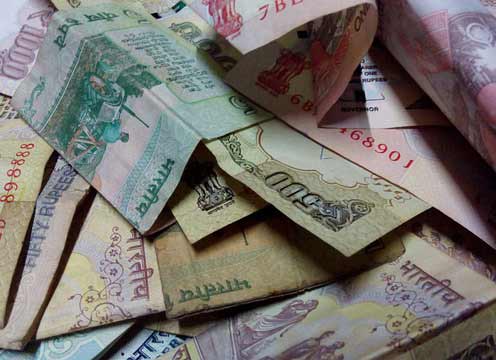Co-operative banks cannot take deposits under PMGKY

The government has barred co-operative banks from accepting deposits under the Pradhan Mantri Garib Kalyan Yojana, 2016. This comes in the backdrop of the Income Tax department finding that a number of such banks were suspected of converting black money into white, during the demonetisation drive from November 8 to December 30.
“Application for the deposit in the form of Bonds Ledger Account shall be received by any banking company, other than Co-operative Banks, to which the Banking Regulation Act, 1949 (10 of 1949) applies,” the finance ministry said in a statement on Friday, while amending the Pradhan Mantri Garib Kalyan Deposit Scheme (PMGKDS), 2016 which was notified by the RBI on December 16.
Under the scheme, taxpayers have to deposit 25 per cent of the declared amount as interest-free deposits for four years. This is apart from the 50 per cent tax that have to paid by declarants under the scheme. The RBI had earlier said this deposit could be made with any banks. But now, cooperative banks have been barred from accepting such deposits. The scheme is open till March 31.
During the 50-day demonetisation period, the income tax department had found various irregularities in co-operative banks’ operations such as backdating of cash deposits, structuring deposits in multiple accounts to escape reporting norms, their management using the bank to launder personal unaccounted cash.
The finance ministry did not give details on why it amended the rules to prevent cooperative banks from accepting deposits under the scheme. Under the scheme, holders of unaccounted cash willing to avail the offer will have to first pay the tax amount and then fill up a challan form provided by the bank for availing the four-year deposit scheme.
The authorised banks have to electronically furnish the details of deposit to the revenue department on the next working day to enable information verification of the deposit before accepting the declaration under the PMGKY.
An estimated Rs 15.44 lakh crore worth of Rs 500 and Rs 1,000 notes were in circulation as on November 8, the day government announced withdrawal of these high denomination notes. While the RBI has not announced the exact amount of withdrawn notes that were deposited, there are reports that close to Rs 15 lakh crore has already come back. The tax department has asked banks to report deposits in any account aggregating Rs 10 lakh in a year, as well as cash payments of Rs 1 lakh or more on credit card bills.
Similar to the higher number of searches and surveys conducted by the tax department during the Income Declaration Scheme (IDS) last year, the tax department has stepped up its investigations for deposits of unaccounted cash post demonetisation, prompting many people to come clean under the Pradhan Mantri Garib Kalyan Yojana (PMGKY).
The Hyderabad Investigation Directorate has also conducted several searches and surveys, among which a jeweller was found to have deposited cash over Rs 100 crore in the scrapped currency of Rs 500 and Rs 1,000 notes. The jeweller had claimed the source of cash as advances from more than 5,200 customers on November 8, the day when the government had announced its decision to scrap old currency notes. After investigation by the tax department, the claim was found to be incorrect and the case was subsequently referred to the Enforcement Directorate.
Based on information about deposits worth Rs 140 crore, the Pune Investigation Directorate over the last two days has conducted searches and surveys on premises of more than 37 jewellers in 16 cities across Maharashtra and has detected serious irregularities, an internal report of the department stated. Following the investigations by the tax department, these persons have opted for disclosures under the PMGKY scheme, it said.
Similar cases have been reported in Hyderabad, with a doctor admitting to depositing cash out of unexplained sources. The tax department subsequently seized Rs 7.5 crore out of total Rs 11.5 crore deposited by the doctor. In other cases, another doctor was found to have routed his unaccounted cash through account of a taxi driver, while a film producer admitted to having deposited unaccounted cash worth Rs 40 crore, out of which Rs 37 crore was seized by the tax department.








